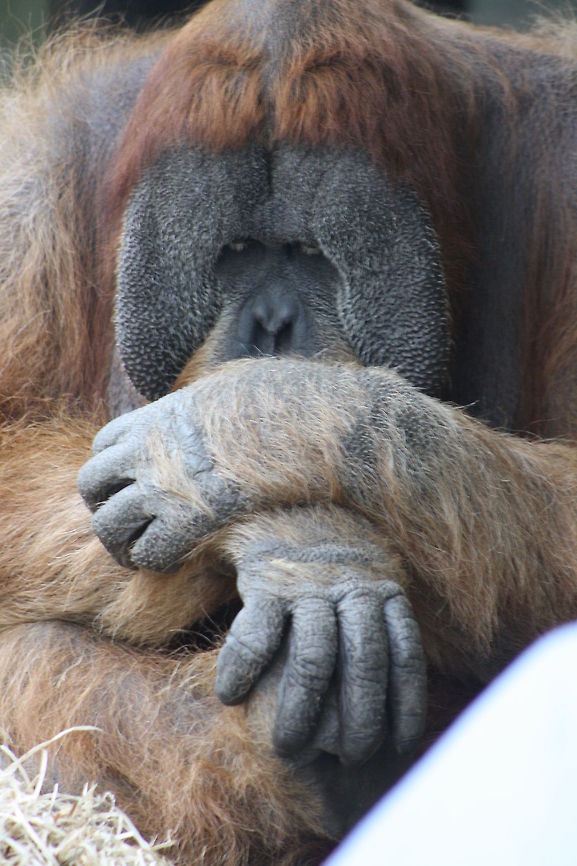
The Sumatran orangutan is one of the two species of orangutans. Found only on the island of Sumatra, in Indonesia, it is rarer than the Bornean orangutan.
Similar species: Primates
By Graeme Ruck
All rights reserved
Uploaded Jul 31, 2013. Captured Jul 13, 2011 10:51.

comments (11)
A true shame, I've uploaded a video. The text here is the one from the video. Posted 12 years ago
I for one will not touch anything that is remotely connected with palm oil. Posted 12 years ago
Next I realized I am part of the problem. I buy products with palm oil in them. I didn't even realize that I do, but I do. And it's in so many products, I still struggle to avoid it.
That's why ultimately important resource decisions should not be left to consumers. The same is true for hardwood, the bio meat industry and other industries. Consumers will not know or not care enough to go for any product but the cheapest.
I simply believe in banning such products altogether, taking out the choice completely. It's harsh but the only effective way. If this hurts "purchasing power", so bloody what. All creatures should use what is reasonably available, not some artificial unsustainable level that we made up.
Sorry, end of rant. Posted 12 years ago
Thankfully though there are numerous organisations working hard to reverse the damage mankind has done. Posted 12 years ago